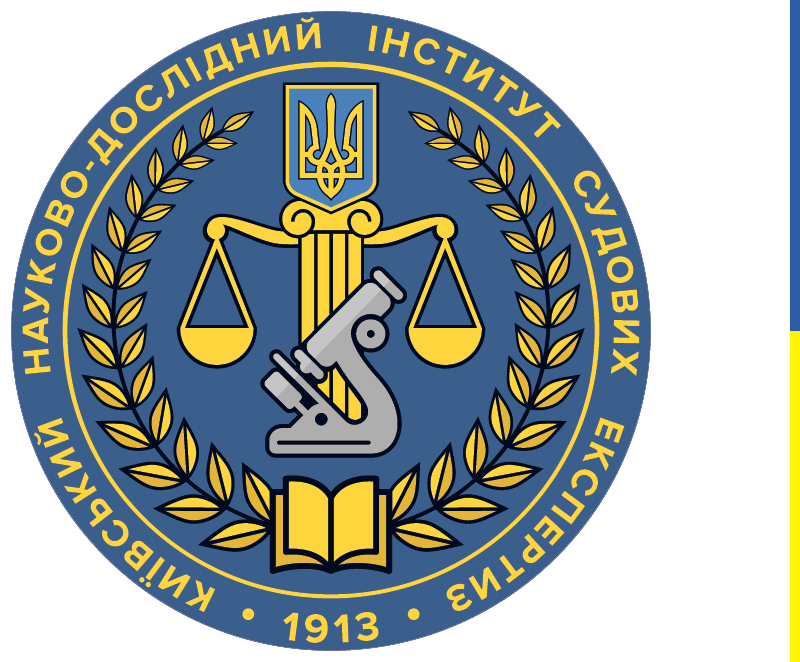General Provisions
An economic examination is a documentary confirmation (study) of the laws of formation, reflection in the registers of accounting, and in reporting information on indicators of economic activity of enterprises; study of the correctness and completeness of the formation of income, expenses and results of activities, the formation of assets, liabilities and equity, bankruptcy and liquidation of enterprises, lease relations, the presence and amount of losses incurred, taxation, including transfer pricing, lending and other financial transactions related to cash flows.
The subject of economic examination is factual data (information) on committed offences of an economic nature: abuses in accounting and control, in the organization of production, and production-sharing; violation of methods and standards in planning, financing and lending to economic activities; causing material damage to entrepreneurial activity or preventing timely detection of facts that lead to inefficiency, unprofitability of production, violations in the field of taxation and transfer pricing.
The objects of forensic economic examination are primary documents confirming the implementation of a business transaction and containing basic information about it, accounting registers containing in a systematic form information on certain accounting objects, data on the formation of the object of taxation and determining the amount of taxes and fees payable to the budget, financial statements including descriptions of applicable accounting policies, tax reporting, other documents containing reliable information related to the subject of research.
Types of economic examination are:
- examination of accounting, tax accounting and reporting documents;
- examination of documents on the economic activity of enterprises and organizations;
- examination of documents of financial and credit transactions.
Tasks of economic examination
The tasks solved by economic examination should be divided separately into different subtypes of economic examination.
The peculiarity of the tasks and methods of economic examination in Ukraine is the instability of legislation in terms of accounting, taxation, instability of legislation that determines the general economic conditions for the functioning of business entities, which complicates the writing of methods, requires deepening their universality and ensuring insensitivity to changes in legislation, the need for constant review and adaptation of existing methods to changes in legislation and economic conditions.
According to the requirements of the Instruction on the appointment and conduct of forensic examinations and expert research, approved by the order of the Ministry of Justice of Ukraine No. 53/5 of 08.10.1998 (hereinafter – the Instruction No. 53/5), conducting audit actions (determination by experts-economists of any economic indicators without prior documentary inspections of financial and economic activities by the subject of control) does not belong to the tasks of economic examination.
Tasks of economic examination of documents on the economic activity of enterprises and organizations
The tasks of this type of economic examination are related to making economic decisions on the implementation of certain transactions: the acquisition of goods (works, services), the expenditure of funds, the economic justification for raising funds, the creation, liquidation, bankruptcy of the enterprise, the assessment of the financial condition of the enterprise, the exit of participants, investment, the establishment of economic tariffs.
This subtype of economic examination can be divided into areas – examinations relating to private enterprises, examinations relating to enterprises/organizations of state and communal forms of ownership, and examinations that solve general economic issues.
Among the tasks that can be solved with the help of the examination of documents on the economic activity of enterprises and organizations:
- analysis of: indicators of the financial condition of the enterprise/organization (solvency, financial stability, profitability, turnover, etc.); vertical and horizontal analysis of the composition and structure of property and sources of its formation;
- confirmation of the value of net assets of the company and the share of the participant upon his withdrawal from the membership of the company;
- confirmation of the calculation of dividends payable made by the enterprise to the owner of corporate rights for a certain period and documentary evidence of business operations of the enterprise related to the accrual and payment of dividends;
- confirmation of the existence and amount of losses caused to the business entity by certain external or internal actions, including lost profits;
- confirmation of compliance of prices for the purchase of goods/services on the basis of tender purchases with the terms of tender documentation (subject to confirmation of technical properties and the level of ordinary prices on the basis of commodity and other types of examinations) and, accordingly, the presence of losses caused by non-compliance with the terms of tender purchases. At the same time, resolving issues regarding compliance by competitive bidding committees with the requirements of the legislation regulating the procurement of goods (works, services) for public funds is not among the tasks of economic examination;
- documentary evidence of the validity of economic tariffs;
- confirmation of documentary validity of calculations in case of privatization and lease of privatized property;
- confirmation of the documentary validity of the targeted expenditure of budget funds;
- confirmation of the probability of bankruptcy of the enterprise based on the results of economic calculations.
Reservation of Instruction No. 53/5:
- Resolving issues regarding compliance by competitive bidding committees with the requirements of the legislation regulating the procurement of goods (works, services) for public funds is not included in the tasks of forensic economic examination.
- Resolving issues regarding the documentary validity of losses by indicators of financial statements of an enterprise/organization for a certain period (recognition of current receivables as hopeless) is not part of the tasks of economic examination.
- The expert is prohibited from solving issues that go beyond his special knowledge, clarifying legal issues and assessing the legality of procedures regulated by regulatory legal acts.
Additional explanations for certain tasks of examination of documents on the economic activity of enterprises and organizations
Losses are the amount of lost assets without the possibility of reimbursement of their value or the inability to use the asset.
The causes of losses due to the loss of assets without the possibility of compensation for their value or the inability to use the asset are groundless (unreasonable):
- transfer (payment) of funds as a result of illegal actions;
- alienation, shortage, destruction (damage) of property, taking into account the valuation of property and/or inventory act;
- additional costs (cost of additional works/materials, costs for the restoration of the violated right of the subject, penalties, etc.);
- overestimation or underestimation of the cost of goods/works/services (price difference, trade margin) taking into account the assessment of goods/works/services as a result of illegal actions;
- acquisition of illiquid (damaged) property, taking into account property valuation;
- loss of the debtor in the obligation (unreasonable assignment of debt, unreasonable replacement of the borrower
- reduction of the share of state (municipal) property in the statutory fund of an economic entity.
- lost profit (lost profit) in the absence of the possibility of using assets (property);
- use in financial and business transactions of securities, the value of which is not confirmed by the actual assets of the issuer.
At the same time, the determination of conditionally probable losses due to the loss of assets due to circumstances (violations) that did not occur and have the form of an assumption is not subject to establishment (calculation).
Confirmation of losses incurred by experts can be carried out only on the basis of the results of the audit actions carried out, which established such losses.
Analysis of the financial condition of the enterprise. Analysis of the financial condition according to the financial statements is a prerequisite for assessing the quality of economic activity of the enterprise. Analytical studies of the financial statements of the enterprise provide an opportunity to assess its solvency and liquidity, the level of financial stability and business activity, and the volume and quality of receivables and payables.
Formally, in order to analyze the financial condition of the enterprise, the following methods are used:
- vertical analysis, that is, analysis of the balance sheet structure (calculation of the proportion of individual items in the balance sheet currency);
- horizontal analysis (including trend analysis ), i.e. analysis of the dynamics of balance sheet items for certain periods of time, determination of absolute and relative indicators of changes by items of the reporting form and determination of development trends over time (trend) of reporting indicators;
- coefficient analysis, i.e. determination of relationships between indicators based on the calculation of relations between balance sheet items and/or other absolute indicators disclosed in the financial statements.
Features of the appointment of economic examination
Together with the document on the appointment of the examination (involvement of an expert), the expert should provide accounting and tax accounting documents that contain initial data to resolve the issues posed. Such documents may include receipt and expense invoices, tax invoices, warrants, reports of materially responsible persons, warehouse accounting cards, cash books, inventory materials, audit reports, timesheets, work orders, acts of acceptance of work performed, employment contracts, payroll, bank statements, payment orders and requirements, liability agreements, accumulative (negotiable) statements, journals-orders, memorial orders on balance sheet accounts, general ledgers, registers of tax invoices, tax returns, balance sheets and other primary and consolidated documents of accounting and tax accounting and reporting.
If accounting is carried out electronically using specialized software, the expert is provided with registers of accounting and tax accounting in printed form, necessarily certified in the prescribed manner. Additionally, they can be provided at the request of an expert on electronic media.
If the examination is appointed to verify the conclusions of the documentary audit, the document on the appointment of the examination (involvement of an expert) indicates which conclusions and for what reasons raise doubts (contradict other case materials, unconvincingly substantiated by financial inspectors, etc.).
If necessary, to determine which documents should be provided to the expert for research in each particular case, it is advisable to consult an expert economist. To conduct the study, it is necessary to provide original documents or duly certified high-quality copies.
Documents should be systematized in chronological order (by relevant periods), filed, laced and numbered.








